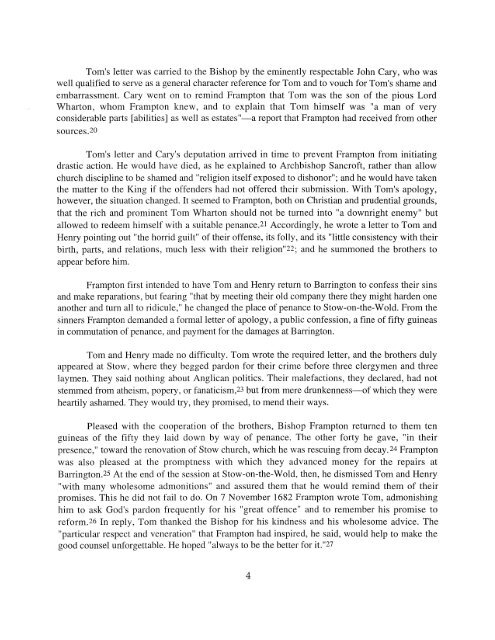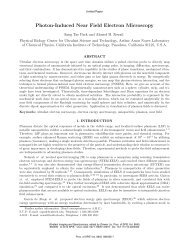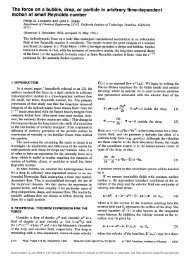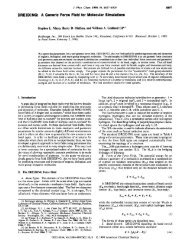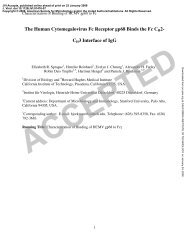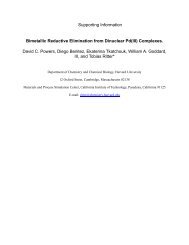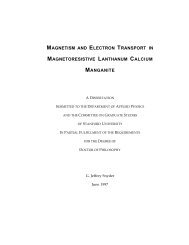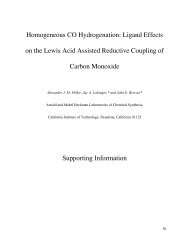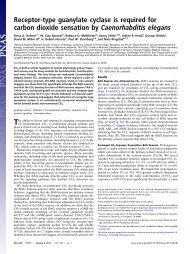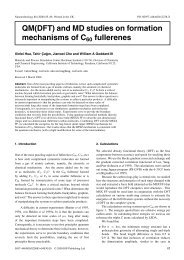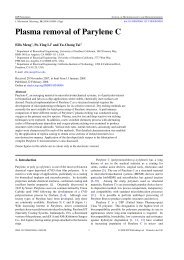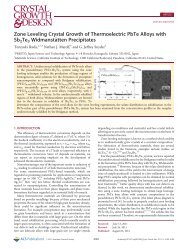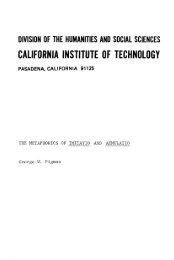Outrages
Outrages
Outrages
Create successful ePaper yourself
Turn your PDF publications into a flip-book with our unique Google optimized e-Paper software.
Tom's letter was carried to the Bishop by the eminently respectable John Cary, who was<br />
well qualified to serve as a general character reference for Tom and to vouch for Tom's shame and<br />
embarrassment. Cary went on to remind Frampton that Tom was the son of the pious Lord<br />
Wharton, whom Frampton knew, and to explain that Tom himself was "a man of very<br />
considerable parts [abilities] as well as estates"-a report that Frampton had received from other<br />
sources.20<br />
Tom's letter and Cary's deputation arrived in time to prevent Frampton from initiating<br />
drastic action. He would have died, as he explained to Archbishop Sancroft, rather than allow<br />
church discipline to be shamed and "religion itself exposed to dishonor"; and he would have taken<br />
the matter to the King if the offenders had not offered their submission. With Tom's apology,<br />
however, the situation changed. It seemed to Frampton, both on Christian and prudential grounds,<br />
that the rich and prominent Tom Wharton should not be turned into "a downright enemy" but<br />
allowed to redeem himself with a suitable penance.21 Accordingly, he wrote a letter to Tom and<br />
Henry pointing out "the horrid guilt" of their offense, its folly, and its "little consistency with their<br />
birth, parts, and relations, much less with their religion"22; and he summoned the brothers to<br />
appear before him.<br />
Frampton first intended to have Tom and Henry return to Barrington to confess their sins<br />
and make reparations, but fearing "that by meeting their old company there they might harden one<br />
another and turn all to ridicule," he changed the place of penance to Stow-on-the-Wold. From the<br />
sinners Frampton demanded a formal letter of apology, a public confession, a fine of fifty guineas<br />
in commutation of penance, and payment for the damages at Barrington.<br />
Tom and Henry made no difficulty. Tom wrote the required letter, and the brothers duly<br />
appeared at Stow, where they begged pardon for their crime before three clergymen and three<br />
laymen. They said nothing about Anglican politics. Their malefactions, they declared, had not<br />
stemmed from atheism, popery, or fanaticism,23 but from mere drunkenness-of which they were<br />
heartily ashamed. They would try, they promised, to mend their ways.<br />
Pleased with the cooperation of the brothers, Bishop Frampton returned to them ten<br />
guineas of the fifty they laid down by way of penance. The other forty he gave, "in their<br />
presence," toward the renovation of Stow church, which he was rescuing from decay.24 Frampton<br />
was also pleased at the promptness with which they advanced money for the repairs at<br />
Barrington.25 At the end of the session at Stow-on-the-Wold, then, he dismissed Tom and Henry<br />
"with many wholesome admonitions" and assured them that he would remind them of their<br />
promises. This he did not fail to do. On 7 November 1682 Frampton wrote Tom, admonishing<br />
him to ask God's pardon frequently for his "great offence" and to remember his promise to<br />
reform.26 In reply, Tom thanked the Bishop for his kindness and his wholesome advice. The<br />
"particular respect and veneration" that Frampton had inspired, he said, would help to make the<br />
good counsel unforgettable. He hoped "always to be the better for it."27<br />
4


